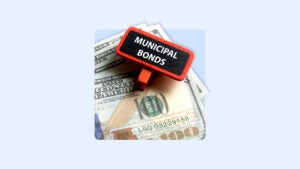Best bond funds for retirement investors

When it comes to saving for retirement, investors generally use a combination of equity and fixed income investments. If you’re young and retirement is still far off, your portfolio is more likely to hold mostly equity (stock-based) investments because you have a long time to make up for any short-term fluctuations in the markets. And then as you approach retirement, your portfolio allocation should begin to shift more toward investments thought to be safer, such as bonds and other fixed-income securities.
Knowing which bond investments to choose can be somewhat confusing and difficult. Despite all the attention that stocks get, the bond market is actually larger than the stock market. The global bond market value was about $140.7 trillion in 2023, compared to $115 trillion for the global equity market, according to the Securities Industry and Financial Markets Association.
Top bond funds for retirement portfolios
Here are some of the best bond funds to consider for your retirement portfolio.
*Note: Data as of Feb. 27, 2025.
iShares Core U.S. Aggregate Bond ETF ( AGG )
The iShares Core U.S. Aggregate Bond ETF seeks to provide broad exposure to the U.S. investment-grade bond market. More than 70 percent of the fund is invested in AAA-rated securities.
- 5-year annualized return: -0.46 percent
- Yield: 3.72 percent
- Expense ratio: 0.03 percent
Vanguard Total Bond Market ETF ( BND )
The Vanguard Total Bond Market ETF seeks to track the investment performance of a broad, market-weighted bond index. You’ll get exposure to the taxable investment-grade U.S. bond market, with about two-thirds of the portfolio invested in U.S. government bonds.
- 5-year annualized return: -0.46 percent
- Yield: 3.65 percent
- Expense ratio: 0.03 percent
Fidelity U.S. Bond Index Fund (FXNAX)
The Fidelity U.S. Bond Index Fund seeks to track the total return of the debt securities in the Bloomberg Barclays U.S. Aggregate Bond Index. Typically, the fund invests at least 80 percent of its assets in securities included in the index.
- 5-year annualized return: -0.47 percent
- Yield: 3.42 percent
- Expense ratio: 0.025 percent
Vanguard Short-Term Corporate Bond ETF ( VCSH )
The Vanguard Short-Term Corporate Bond ETF invests mostly in high-quality investment-grade corporate bonds with the goal of providing current income with modest volatility. The fund maintains a dollar-weighted average maturity between one and five years.
- 5-year annualized return: 1.92 percent
- Yield: 3.94 percent
- Expense ratio: 0.03 percent
iShares Floating Rate Bond ETF ( FLOT )
The iShares Floating Rate Bond ETF seeks to track the investment performance of an index of U.S. investment-grade floating rate bonds with remaining maturities between one month and five years. Floating-rate bonds’ interest payments adjust to the changes in interest rates, making them attractive investments during periods of rising rates.
- 5-year annualized return: 3.15 percent
- Yield: 5.80 percent
- Expense ratio: 0.15 percent
Fidelity Investment Grade Bond Fund (FBNDX)
The Fidelity Investment Grade Bond Fund is an actively managed fund that seeks to provide a high level of current income. The fund typically invests at least 80 percent of its assets in all types of investment-grade bonds.
- 5-year annualized return: 0.31 percent
- Yield: 3.98 percent
- Expense ratio: 0.44 percent
Schwab U.S. Aggregate Bond Index Fund (SWAGX)
The Schwab U.S. Aggregate Bond Index Fund seeks to track the investment performance of an index composed of the total U.S. investment-grade bond market. The fund comes with no investment minimums and a low cost, making it a solid pick as a core bond holding in a diversified portfolio.
- 5-year annualized return: -0.55 percent
- Yield: 3.93 percent
- Expense ratio: 0.04 percent
Where can you buy bond funds?
Bond funds can be bought at almost any online brokerage, but some brokers may have a wider offering than others. Bond ETFs will be available at any of the best online brokers. If you’re looking to buy one, you’ll probably find what you’re looking for at any of these top brokers.
But for mutual funds the situation is different. Not all mutual funds are offered at all brokers, so it makes sense to see if a broker offers the specific mutual fund you’re looking for. Start with the best brokers for mutual funds to see if it has access to the bond fund you want to buy. You can use a broker’s fund mutual-fund screener to see if the fund is available to purchase there.
Editorial Disclaimer: All investors are advised to conduct their own independent research into investment strategies before making an investment decision. In addition, investors are advised that past investment product performance is no guarantee of future price appreciation.
Why we ask for feedback Your feedback helps us improve our content and services. It takes less than a minute to complete.
Your responses are anonymous and will only be used for improving our website.






